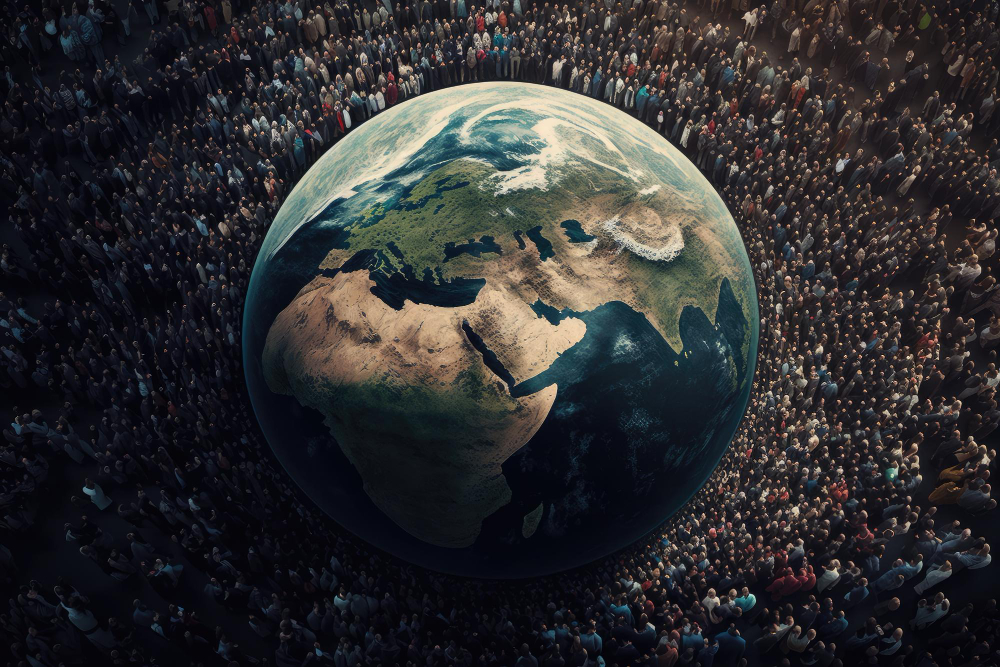Most of our predictions for 2024—from the situation in the Middle East and Ukraine to the Chinese economy and the United Kingdom elections—were right. We ended with an impressive 7 out of 10 score. But one of our most important predictions—that Joe Biden would retain the United States presidency—turned out to be more than just wrong, as Biden did not even run for re-election.
Fortunately, there are no negative scores in our state-of-the-art prediction scoring algorithm. For 2025, we are determined to get better at being wrong, which is why we have focused on predictions with clear binary outcomes. Here are our ten key foreign policy trends for 2025, along with two bonus technology-focused forecasts.
1. It’s Trump’s world; we only live in it. Most governments outside of Europe (and a few within) spend the year either welcoming or pretending to welcome Donald Trump’s return to power. They find comfort in an American president who prioritises domestic interests over positioning the US as a global moral arbiter or a hegemonic power. By the end of 2025, the G7 evolves from a centre-left to a right-leaning group, showing little interest in “woke” issues like climate change or food insecurity. Even among Europeans, the predominant response to Trump’s re-election is one of pre-emptive surrender, tempered by discreet bargaining.
2. The German grand coalition strikes back. The February election results in a yet another version of the grand coalition of the CDU/CSU and SPD coming to power in Germany. To the disappointment of many Europeans, this recycled coalition does not introduce any major changes in Germany’s foreign, security, or economic policy—whether on Chinese electric vehicles, military support for Ukraine, or defence spending. But they provide a comforting, if false, sense of stability to a German public that yearns for little else.
3. The Trump chaos machine masks the erosion of US democracy. Once in office, Trump unleashes so much political outrage and chaos in US foreign policy that no one notices how effectively he is consolidating power within the White House. The main victims are the cabinet departments and Congress, both of which lack the political capacity to even complain publicly (let alone mount any significant resistance).
4. Quasi-peace in Ukraine. The war reaches a ceasefire or at least a quiescence that is broadly favourable to Russia but also palatable to Ukraine. Ukraine de facto loses territory and fails to get invited into NATO, but retains its independence and receives pledges of support and security guarantees from Western countries. Both sides embark on a campaign of reconstruction and rearmament in preparation for the next war, while failing to notice that their collapsing demographics renders such efforts increasingly futile.
5. Israel and Iran continue sparring but don’t stage a title match. Despite Iran’s current weaknesses, Israel keeps focussing its attacks on its proxies and does not launch a pre-emptive strike on Iran’s nuclear programme as many expect. That programme progresses but the Iranian government stops short of declaring itself a nuclear-armed power.
6. A contained conflict between the US and China. The US launches a trade war against China, yet by year’s end, negotiations to end it are progressing. Both sides see this effort as more of a conscious decoupling than a divorce. For the 76th year in a row, the PRC does not invade Taiwan.
7. A Kurdish-Turkish peace deal. Flush from his surprise victory in Syria and ascendent domestically, President Recep Tayyip Erdogan uses this newfound strength to reach a peace deal with the PKK. This deal allows the Syrian Kurds to settle differences with the newly established Syrian government and reintegrate the Syrian Kurdish region into the country with some degree of autonomy.
8. A European Musk-rat. The world’s richest gadfly, Elon Musk, interferes in multiple European elections, making such a general pest of himself that the European Commission launches a slew of investigations into his business interests. By the end of the year, the European Union demands policy changes from his social media platform X in order for it to continue to operate in the EU.
9. Clarity over the Channel; Europe united. Driven by a mix of mutual insecurity and slow growth, the UK and the EU agree to a major reset of their relationship. The resulting deal surpasses expectations on both sides of the Channel.
10. A refugee non-crisis. A surge of refugees from Ukraine, Syria and elsewhere floods into Europe, dwarfing the numbers seen in 2015. However, unlike that year, there is no political crisis as governments respond vigorously with immigration suppression policies that adopt or even copy the ideas of populist anti-immigration parties
Bonus: The artificial intelligence bubble partially bursts, resulting in a major loss of market value for incredibly expensive AI firms. This setback is only temporary, but it provides the rest of us with a brief respite from the incessant hype of an AI-driven future.
Bonus: The word “quantum” becomes so ubiquitous in the mainstream media that most Europeans start pretending to know what it means. Beneath the mansplaining, genuine uncertainty lingers as to whether quantum technology is dead or alive.
About authors:
Mark Leonard is co-founder and director of the European Council on Foreign Relations, the first pan-European think–tank. He is also the current Henry A Kissinger chair in foreign policy and international relations at the US Library of Congress, Washington DC. His topics of focus include geopolitics and geoeconomics, China, EU politics and institutions.
Jeremy Shapiro is the research director of the European Council on Foreign Relations. His areas of focus include US foreign policy and transatlantic relations.


